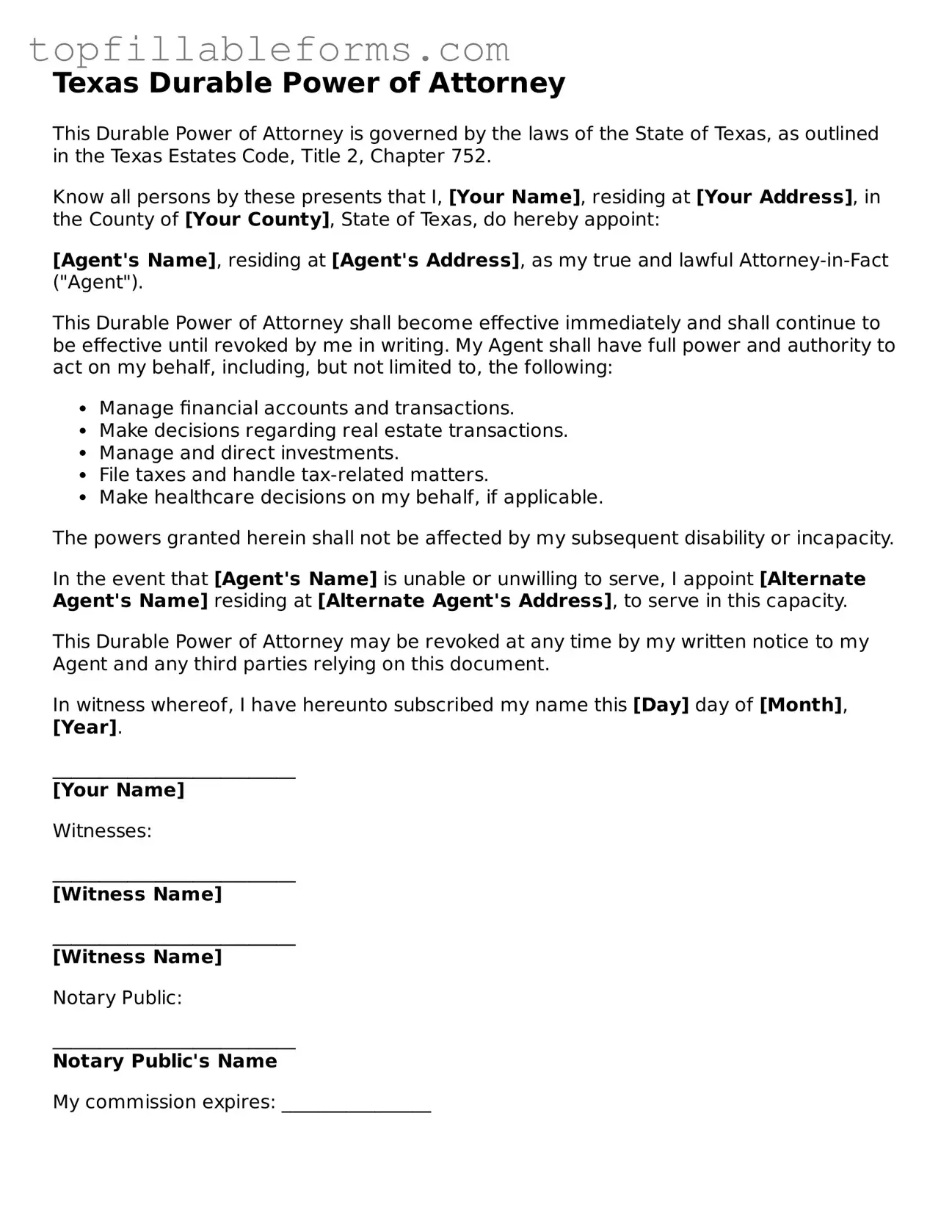Attorney-Verified Durable Power of Attorney Template for Texas
A Texas Durable Power of Attorney form is a legal document that allows an individual, known as the principal, to appoint someone else, called an agent, to make financial and legal decisions on their behalf. This form remains effective even if the principal becomes incapacitated, ensuring that their affairs are managed according to their wishes. Understanding how this document works can provide peace of mind and help safeguard your interests in times of need.
Open Durable Power of Attorney Editor Here

Attorney-Verified Durable Power of Attorney Template for Texas
Open Durable Power of Attorney Editor Here
Finish the form now and be done
Finish your Durable Power of Attorney online by editing, saving, and downloading fast.
Open Durable Power of Attorney Editor Here
or
▼ PDF File
